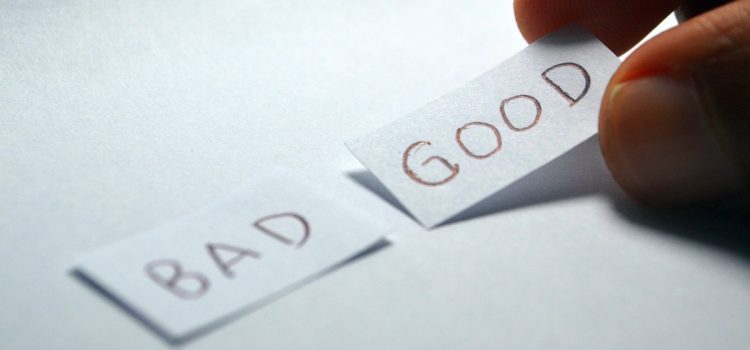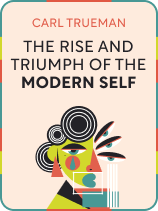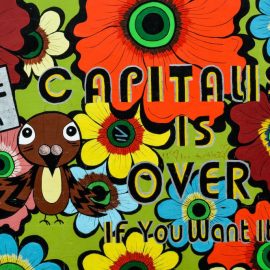

This article is an excerpt from the Shortform book guide to "The Rise and Triumph of the Modern Self" by Carl Trueman. Shortform has the world's best summaries and analyses of books you should be reading.
Like this article? Sign up for a free trial here.
What was Rousseau’s view of human nature? How did his philosophy find its way into the mainstream?
In the 18th and early 19th centuries, the traditional Christian view of innate sinfulness began to give way to a new school of thought in the West. According to Jean-Jacques Rousseau, human nature is essentially good. This philosophy took hold in Western thought, and it ultimately transformed society.
Read more to learn about Rousseau’s view of human nature, morality, and the self.
Rousseau on Human Nature
In The Rise and Triumph of the Modern Self, Carl Trueman argues that cultural developments of the past three centuries have transformed our conception of selfhood—from a self rooted in religion, tradition, and community to one rooted in individualism, emotion, and sexuality. He states that this modern conception of the self didn’t appear overnight. Rather, it’s the result of three major developments stretching from the 18th to the 20th centuries: promoting the interior self, undermining the traditional view of human nature, and sexualizing selfhood.
The transformation into the modern self began with a turn toward focusing on internal experiences rather than external circumstances. Trueman traces two important developments in this history: the philosophy of Jean-Jacques Rousseau and the poetry of the Romantic movement.
Trueman’s analysis begins with the 18th-century Swiss philosopher Jean-Jacques Rousseau, who elevated the moral status of the inner self. According to Christian traditions, humans are born sinful but become virtuous by following divine morals that are passed on through institutions. In other words, people must learn to be good. But, according to Rousseau, human nature is essentially good. He argued that people’s natural moral intuitions are good, but they behave badly because they suppress these intuitions to conform to a corrupt society.
For example, he states that vices like envy, pride, and competitiveness are active only in social situations. You need to see what someone else has to envy them. Trueman explains that Rousseau’s moral philosophy lays the groundwork for a view that the inner self stands in tension with society and that, of the two, the inner self is morally superior.
(Shortform note: Rousseau’s ideas on human nature were controversial in their time. The French philosopher Voltaire [born François-Marie Arouet], rejected the idea that moral intuitions could be superior to reason cultivated through education. He believed that humanity could improve its conditions in life by cultivating intellect and famously joked that Rousseau’s celebration of “natural man” made him want to “walk on all fours.” The political philosopher Edmund Burke also pushed back on Rousseau’s cynical attitude toward institutions and traditions. He argued that society and its traditions were the product of accumulated wisdom and a necessary source of morality and social order.)
Popularization by the Romantic Poets
Rousseau’s conception of the natural, morally superior inner self was popularized by a movement in 19th-century poetry called Romanticism. The Romantic movement included major poets like William Blake, Samuel Taylor Coleridge, and Percy Bysshe Shelley. Trueman explains that the Romantic poets saw “culture” as something artificial and mannered. They believed that uneducated rural people living rustic lives were more “authentic” and “natural” because they hadn’t assimilated the corrupting influence of culture like educated people in cities.
Because the Romantics were skeptical of the idea that important truths could be found in “culture” or “society,” they elevated emotional and aesthetic experience as a source of higher truth. However, they detached these experiences from any moral framework. This further built the moral authority of the individual against cultural institutions like religion.
| The Broader 19th-Century Romantic Movement While Trueman focuses his analysis exclusively on poetry, 19th-century Romanticism was a much broader cultural movement that also found expression in painting, music, and literature. Each expression of this movement may have helped spread Rousseau’s individualism and interiority with their shared focus on subjective experience and emotional expression. • Painters like Francisco Goya and Caspar David Friedrich adopted harsh diagonal lines and high-value contrast to create dramatic scenes of emotional intensity. • Composers like Richard Wagner and Pyotr Ilyich Tchaikovsky expanded the size of the orchestras and adopted expressive melodies with looser organization than their classical predecessors. • Literature took a turn away from logic toward the supernatural. Folklore and fairy tales like those of the Brothers Grimm and Hans Christian Andersen grew in popularity alongside works of gothic fiction like Mary Shelley’s Frankenstein and Bram Stoker’s Dracula. |

———End of Preview———
Like what you just read? Read the rest of the world's best book summary and analysis of Carl Trueman's "The Rise and Triumph of the Modern Self" at Shortform.
Here's what you'll find in our full The Rise and Triumph of the Modern Self summary:
- How the modern conception of selfhood has changed over the centuries
- How Christian views have become stigmatized, damaging Western culture
- What modern Christians can do to preserve traditional values






